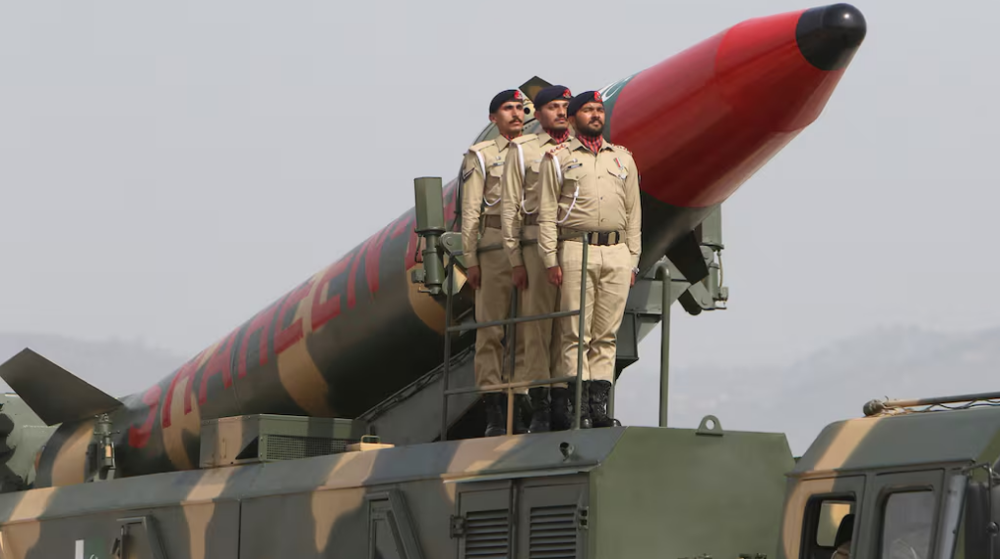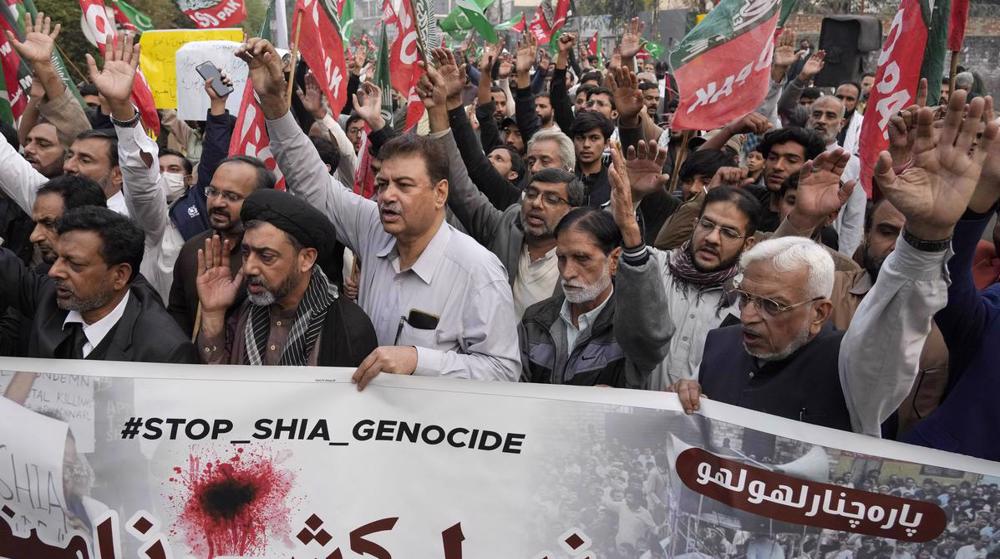Pakistan's premier, military to meet to respond to Trump's censure
Prime Minister Shahid Khaqan Abbasi is set to meet with Pakistani generals to formulate a response to recent criticism by US President Donald Trump who has criticized Islamabad for not doing enough to rein in militants.
Army Chief General Qamar Javed Bajwa will be part of the National Security Council meeting, which will be held in the capital Islamabad on Thursday.
Abbasi has not yet responded to Trump's remarks.
Foreign Minister Khawaja Asif, however, said Washington should not use Pakistan as a "scapegoat" for its failures in America's longest running war in neighboring Afghanistan.
Mushahid Hussain, chairman of the senate defense committee, also said on Thursday, "We feel the American administration led by Mr. Trump has been totally one-sided, unfair to Pakistan and does not appreciate and recognize Pakistan has been a pivotal player ... in the campaign against terrorism."
"Things have changed since 9/11," added Hussain, noting, "The US today has far more diminished clout and leverage in the region and we have far more strategic space and options in our foreign policy."
Pakistani officials bristle at what they say is a lack of respect by Washington for the country's sacrifices in the war against militancy.
Pakistan estimates there have been 70,000 casualties in militant attacks since it joined the US operation against militants after the September 11, 2001, attacks.
Pakistani officials have also been angered by Trump imploring old rival India to play a greater role in reconstructing Afghanistan.
Trump chastised Pakistan for harboring ‘agents of chaos’
On August 21, the American president in a major speech outlining US policy on Afghanistan denounced Islamabad for offering safe haven to "agents of chaos."
“We can no longer be silent about Pakistan’s safe havens for terrorist organizations, the Taliban and other groups that pose a threat to the region and beyond,” Trump said.
Trump also went further and threatened aid and military cuts to Pakistan. "We have been paying Pakistan billions and billions of dollars at the same time they are housing the very terrorists that we are fighting."
“Pakistan has much to gain from partnering with our effort in Afghanistan. It has much to lose by continuing to harbor terrorists,” he said.
Successive US governments have criticized Pakistan for links with the Taliban militants and for harboring slain al-Qaeda leader Osama bin Laden.

Elsewhere in his speech, Trump also said the United States wanted India to help more with Afghanistan, especially in the areas of economic assistance and development.
China jumps to defend Pakistan after Trump’s criticism
According to Chinese state media, China's top diplomat, Yang Jiechi, has told US Secretary of State Rex Tillerson in a phone call that the United States must value Pakistan's role in Afghanistan and respect its security concerns.
Chinese Foreign Ministry spokeswoman Hua Chunying also told a regular press briefing in Beijing on Tuesday that Pakistan "has made great sacrifices and contributions to fighting terrorism."
In recent years, China and Pakistan have formed close diplomatic, economic and security ties to counter their common rival India.
US war on terror strains Afghan-Pakistani ties
Pakistan and Afghanistan regularly accuse each other of sheltering their enemy insurgents. Both sides, however, deny such an allegation.
Kabul blames elements in the Pakistani spy agency, Inter-Services Intelligence (ISI), for supporting the Taliban militants. Islamabad blames the Afghan government for giving refuge to militants on its side of the border. The two sides also accuse one another of not doing enough to stop militants engaging in cross-border attacks.
Afghanistan has been gripped by insecurity since the United States and its allies invaded the country as part of Washington’s so-called war on terror in 2001. Many parts of the country remain plagued by militancy despite the presence of foreign troops.
US forces have been bogged down there through the presidencies of George W. Bush, Barack Obama and now Trump.
Militants are now launching attacks on both Pakistani and Afghan soil.
Relentless Israeli ceasefire violations justify need for self-defense: Lebanese MP
Tel Aviv tells Damascus Israeli forces will remain in occupied territory: Report
Dec. 22: ‘Axis of Resistance’ operations against Israeli occupation
‘Abhorrent’: Oxfam says only 12 trucks delivered aid in North Gaza since Oct.
VIDEO | Leader receives religious eulogists on Hazrat Fatima birth anniv.
Pope Francis slams Israel’s ‘machine-gunning’ of Gaza children
US hostage-taking of Iranian nationals violation of intl. law: Deputy FM
VIDEO | Carol Singers for Palestine on London’s Parliament Square










 This makes it easy to access the Press TV website
This makes it easy to access the Press TV website